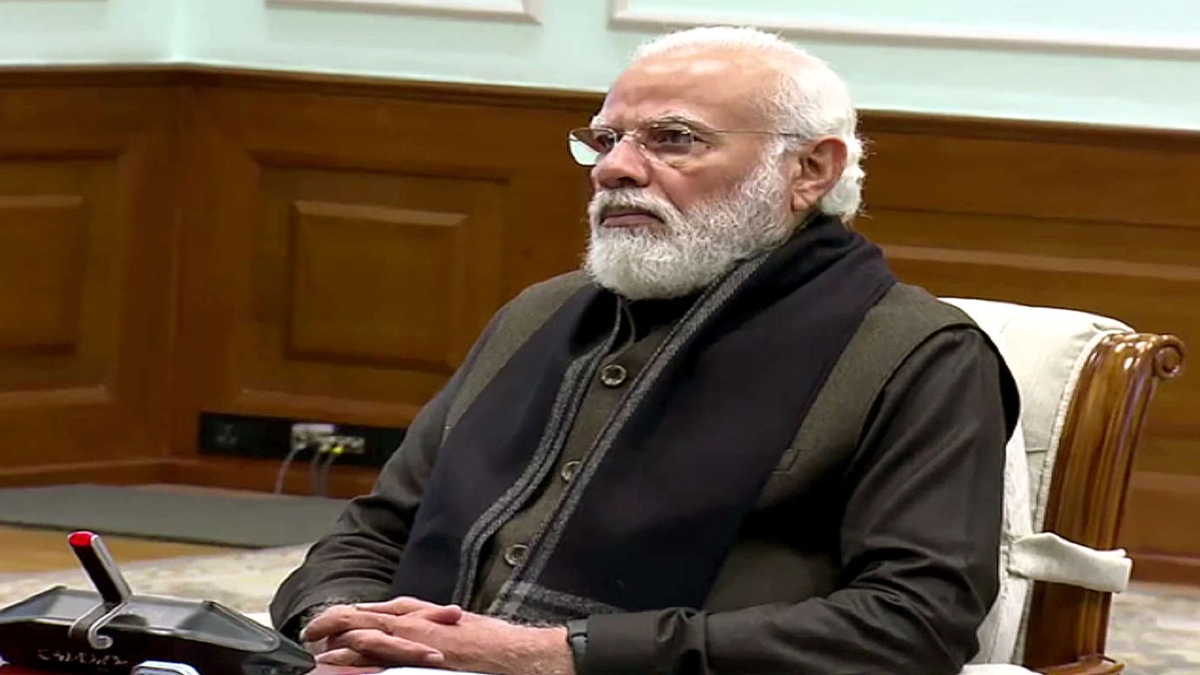


Prime Minister Modi on Monday said that India’s commitment to deep economic reforms is a major reason that makes it the most attractive destination for investment today. “During the Corona period, when the world was focusing on interventions like Quantitative Easing Program, India paved the way for reforms. The biggest projects to modernise digital and physical infrastructure were given unprecedented momentum in the Corona era itself”, said PM Modi while delivering the “State of the World” address virtually at the World Economic Forum’s Davos Agenda on Monday. “India’s commitment to deep economic reforms is another major reason that is making India the most attractive destination for investment today,” he added.
The Prime Minister also said that India is committed to being a trusted partner of the world in global supply chains. “We are making avenues for free-trade agreements with many countries.”
“There was a time when India was identified with licence raj. Most of the things were controlled by the government. I understand the challenges for business in India. We are constantly trying to overcome every challenge.”
Emphasising that India has the third-largest number of Unicorns in the world, he said that more than 10,000 start-ups have been registered in the last 6 months. The Prime Minister also emphasised that India is sending record software engineers to the world. “More than 50 lakh software developers are working in India.”
The PM added that India is promoting Ease of Doing Business and minimizing government intervention. “India has made it the most competitive in the world by
simplifying, reducing its corporate tax rates. Last year alone, we have reduced more than 25,000 compliances,” said PM Modi.
Urging the world to invest in India, PM Modi said that “the spirit of entrepreneurship, which has the capacity to adopt new technology in Indians, can give new energy to each of our global partners”.
PM Modi also stressed that India has the world’s largest, safe and successful digital payments platform. “In the last month alone, 4.4 billion transactions have taken place in India through Unified Payments Interface (UPI),” he added.
India has saved crores of lives during the Covid-19 pandemic by supplying vaccines and essential medicines to many countries under One Earth One Health vision, the PM said.
“In this time of Corona, we have seen how India following the vision of ‘One Earth, One Health’ is saving crores of lives by giving essential medicines, vaccines to many countries.” “Today, India is the third-largest pharma producer in the world, is pharmacy to the world,” he added.
India has gifted the world “a bouquet of hope” said the Prime Minister.
“India is celebrating its 75th year of Independence and also the administration of 156 crore vaccine doses in the country. India has gifted the world a bouquet of hope,” said PM Modi. “In this bouquet, we Indians have an unwavering trust in our democracy, we have the technology to empower the 21st century with the temperament and talent of Indians,” he added.
The Prime Minister also called for reforms in multilateral organisations, stating there has been a change in the global situation and there is a question if they are prepared to deal with the new world order.
The PM said the challenges being faced by different countries are increasing and there is a need for “collective and synchronized action” by the world communities. “Seeing the global situation today, the question is also if the multilateral organizations are prepared to deal with the new world order and new challenges. When these organisations were formed, the situation was different, today the situation is different. Hence it is the responsibility of every democratic country to give emphasis on reforms in these institutions so that they can be made effective to deal with the challenges of today and tomorrow,” he said.
“Today, besides the change in the global order, the challenges that we have been facing as a global family, that are also increasing. There is a need for collective and synchronised action by every country, global agency to deal with them,” he added.
He cited disruption in the supply chain, inflation and climate change as examples of challenges. “One more example is cryptocurrency. The way technology is linked, the decisions taken by one country will be insufficient to deal with the challenges. We will have to keep similar thinking,” he said.
Davos Agenda of the WEF is being held from 17-21 January. Several heads of state will address the event. The event will also witness the participation of top industry leaders, international organisations and civil society, who will deliberate on critical challenges being faced by the world today and discuss how to address them.